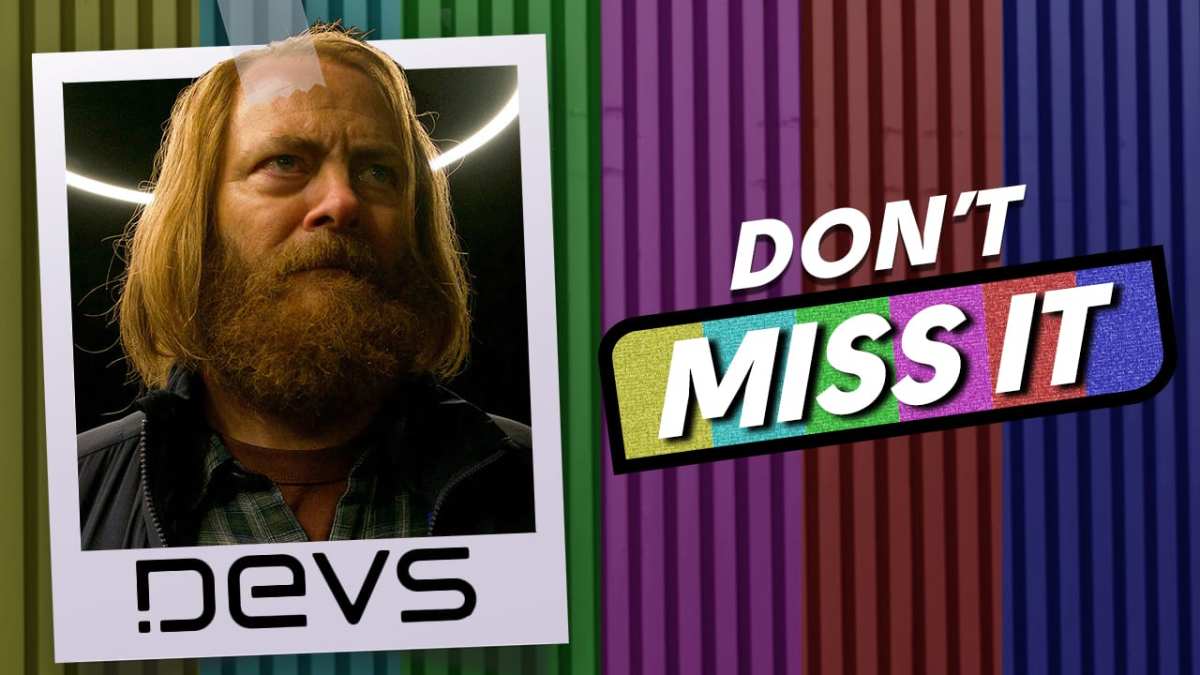Alex Garland is among the most exciting science fiction writers working in Anglo-American film and television.
Garland began as a novelist, publishing The Beach in 1996. That novel would be adapted for screen by Danny Boyle in 2000, sparking a partnership between the two that would lead to Garland contributing the screenplays for 28 Days Later and Sunshine. Garland’s other screenplay credits include adaptations like Never Let Me Go and Dredd, before transitioning into direction with Ex Machina and Annihilation.
Devs marks a new departure for Garland. It will be the writer/director’s first work in television. The eight-part miniseries is launching as part of FX on Hulu, a scheme that will see the television channel providing the online streamer with both new and archival content. This model seems appropriate for a sprawling existential mystery unfolding within the world of a vaguely sinister San Francisco tech giant.
Devs focuses on Lily (Sonoya Mizuno), who, after the disappearance of her boyfriend — a developer named Sergei (Karl Glusman) recently promoted within the quantum computing company Amaya — embarks upon a quest to determine what happened to him, brushing up against icy head of security Kenton (Zach Grenier) and ominous CEO Forest (Nick Offerman).
It spoils little to reveal that Devs grapples with bold questions about the nature of human consciousness and questions of predeterminism. Indeed, Garland structures Devs to ensure that the audience remains ahead of Lily’s inquiries, which allows him a bit of room to seed his larger ideas and deeper concepts. Devs is much more interested in its big questions than preserving the particulars of its mystery.
This is the primary appeal of Devs. The series looks beautiful and moves purposefully, but it offers a very grounded exploration of its high concepts. It’s notable that the world of Amaya often feels more like a site of worship than a place of business, its inhabitants more like devotees than employees. Devs offers a very traditional and literary form of science fiction, one driven more by ideas than by spectacle.
In some ways, Devs feels like a companion piece to shows like Westworld or Black Mirror. However, it is also consciously and deliberately shorn of some of their extravagance and sensationalism. This is very much in keeping with how Garland has typically approached his storytelling, using recognizably science fiction frameworks to ask more profound questions about the human condition.
Ex Machina was a story about artificial intelligence, but it also grappled with issues like power and self-awareness. Annihilation offered a riff on the classic science fiction premise of Stalker, but it played as a metaphor for the process of self-destruction as an act of reinvention. Even films like 28 Days Later, Sunshine, and Dredd focused on the relationships between individuals and larger systems.
Garland both wrote and directed all eight episodes of Devs, describing the “scale and scope” of the opportunity as appealing to him. The show’s pacing is deliberate. Devs takes its time to draw out its core themes and explore its central concepts. Garland’s meticulous attention to detail and his strong cast anchors the series when it occasionally threatens to slip into empty pseudo-philosophical navel-gazing.
Following the two-hour pilot, Devs will be rolled out at the pace of an episode a week. This feels like the best way to digest the series, allowing the show’s deliberate pacing to extend beyond the individual episodes and into its release model. In an era where so much science fiction in film and television is designed to be gulped down, it is refreshing to have a series that demands to be savored.
The first two episodes of Devs are available on Hulu now. The following six will be released weekly on Thursdays.






Published: Mar 8, 2020 01:00 pm